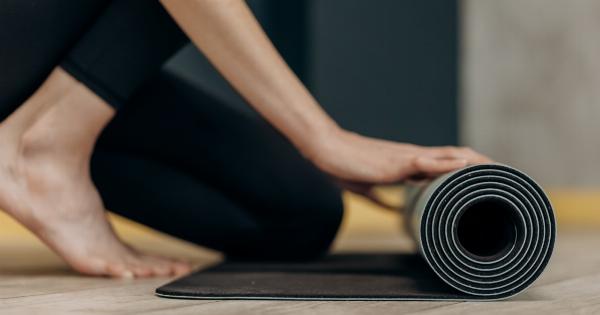Getting a good night’s sleep is essential for our physical and mental well-being. However, many of us struggle with various noises that can disrupt our sleep and leave us feeling tired and groggy in the morning.
In this article, we will explore some common noises that keep people up at night and offer effective tips on how to stop them.
1. Traffic Noise
Living near a busy road or in a bustling neighborhood can expose you to unwanted traffic noise, making it challenging to fall asleep. To minimize the disturbance, consider the following:.
– Install soundproof curtains or window inserts to reduce the outside noise.
– Use a white noise machine or a fan to create a soothing background noise that can help mask the traffic sounds.
– Consider using earplugs designed for sleeping to block out the noise.
2. Snoring
Snoring can be a significant nuisance for both the snorer and their partner. If you or your partner snore, try these suggestions:.
– Change sleeping positions. Elevating your head with an extra pillow or sleeping on your side can help reduce snoring intensity.
– Use nasal strips or nasal dilators to improve airflow and reduce snoring.
– Seek medical advice if snoring persists or intensifies, as it may be a sign of an underlying health issue.
3. Noisy Neighbors
Living in an apartment or a condominium often means dealing with noisy neighbors and their activities. Here are some ways to address this issue:.
– Talk to your neighbors politely and explain the situation. They may not be aware that their noise is bothering you.
– Use earplugs or noise-canceling headphones to drown out the noise.
– Consider using a white noise machine that plays soothing sounds to mask the disturbances.
4. Barking Dogs
Continuous barking can be frustrating, especially when it disrupts your sleep. Try these solutions:.
– Talk to the dog’s owner and politely express your concerns. They may not realize that their dog’s barking is causing a disturbance.
– Use earplugs or noise-canceling headphones to block out the noise.
– If the problem persists, contact local authorities or your homeowner’s association to report the noise violation.
5. Noisy Street or Construction Work
Living near a construction site or a street undergoing repairs can make it difficult to sleep peacefully. Consider the following options:.
– Use earplugs or noise-canceling headphones to minimize the impact of the noise.
– Establish a regular sleep routine. Going to bed and waking up at the same time every day can help you get better sleep, even with external disturbances.
– Consider using a high-quality white noise machine that offers a variety of soothing sounds to mask the disruptive noises.
6. Household Appliances
The humming noise from household appliances like refrigerators, air conditioners, or washing machines can interfere with your sleep. Here’s what you can do:.
– If possible, relocate noisy appliances away from your bedroom or consider insulating the area to reduce noise transmission.
– Place a thick rug or carpet under the noisy appliance to absorb vibrations and reduce noise.
– Regularly maintain and service your appliances, as aging or malfunctioning parts can increase noise levels.
7. Train or Airplane Noise
Living near train tracks or an airport can subject you to loud train or airplane noises. Try these tips to minimize their impact:.
– Use earplugs designed to block out specific frequencies of noise, such as train or airplane sounds.
– Consider using a sound machine that offers natural sounds like rain or waves to help mask the disruptive noise.
– Use heavy curtains or window inserts to minimize noise transmission from outside.
8. Ticking Clocks
While some people find the sound of ticking clocks soothing, it can keep others awake at night. Here’s how you can address this issue:.
– Keep ticking clocks out of the bedroom or place them inside drawers or cabinets to muffle the sound.
– Use a white noise machine or a fan to create a background noise that can drown out the ticking sound.
– Opt for silent or digital clocks that do not produce ticking sounds.
9. Creaking Floors or Doors
Creaking floors or doors can be disruptive, especially if you have a light sleeper in the house. Consider the following solutions:.
– Apply lubricant to the hinges and moving parts of doors to reduce friction and eliminate creaking sounds.
– Place rugs or carpets on creaky floors to minimize noise transmission.
– If possible, reinforce or repair the areas causing the creaking sounds for a long-term solution.
10. Loud Roommates or Family Members
Living with loud roommates or family members can make it challenging to sleep peacefully. Here are some ways to address the issue:.
– Have an open and honest conversation with your roommates or family members about their noise levels and how it affects your sleep.
– Establish noise guidelines or quiet hours to ensure everyone respects each other’s need for sleep.
– Use earplugs or noise-canceling headphones to block out the noise, especially during designated sleep times.
Getting a restful night’s sleep is crucial for our overall well-being. By implementing some of these strategies, you can tackle the noises that keep you up at night and enjoy a peaceful sleep routine.































